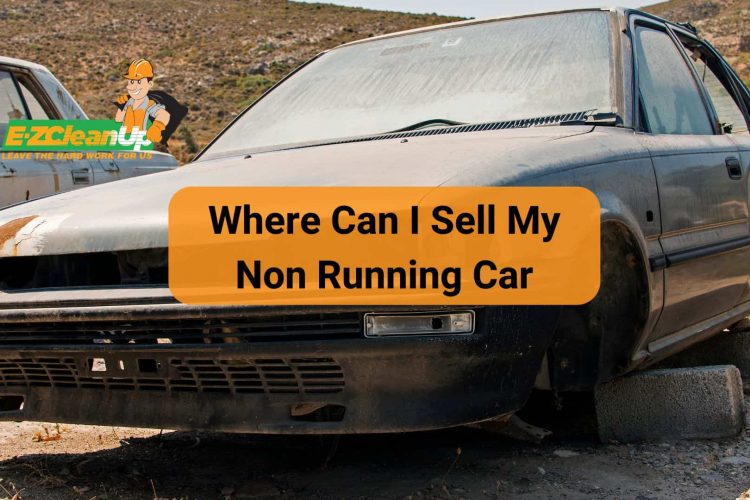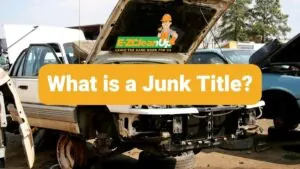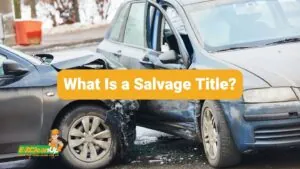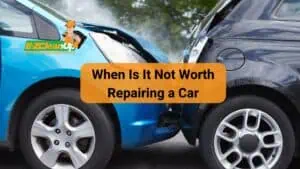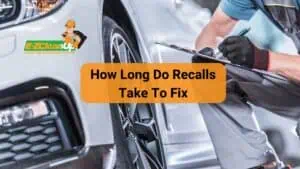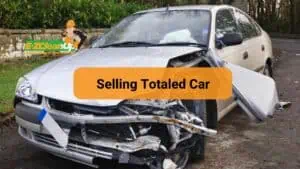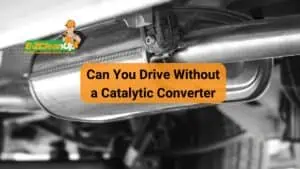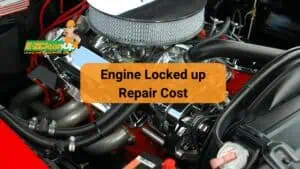To offload a non-running car, consider selling it to junkyards, using online platforms, or finding private buyers. For a swift process without haggling, donating for a tax deduction or dismantling the car to sell parts individually are viable alternatives.
Find out the details and get more enlightened as this guide answers the question, “where can I sell my non running car?”
Places to Sell Your Non-Running Car
When you’re looking to part with a non-running vehicle, there are a few avenues you can explore to potentially maximize your returns or dispose of the car most conveniently.
Selling to Junkyards and Scrap Yards
Junkyards and scrap yards are often the quickest option for selling non-running cars. These services pay top dollar for junk cars, primarily for the salvage value of the parts and metal, which can be recycled.
To get the best deal, it’s advisable to contact several yards and compare offers. Keep in mind that the price you receive will largely depend on the scrap metal prices at the time of the sale.
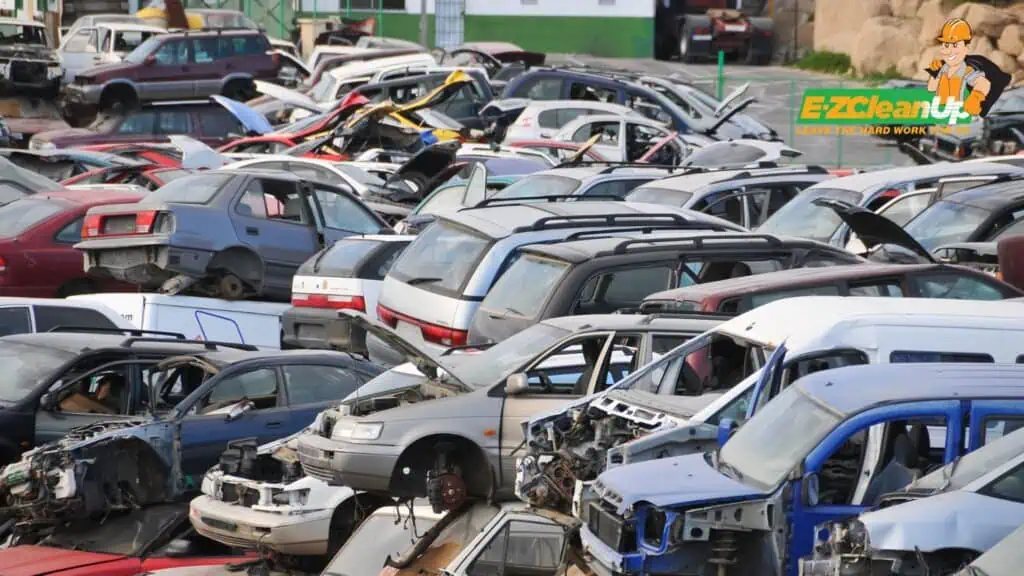
Professional Junk Removal Services
Although not all junk removal services purchase junk cars, EZ CleanUp does. We provide a more straightforward service than junkyards and scrap yards by offering free towing for your non-running car.
Using Online Platforms for Non-running Vehicles
Online platforms like eBay Motors and Facebook Marketplace provide a broader audience for selling a non-running car. These platforms allow you to set either a direct sale price or auction it. They give you control over the selling process.
Detailed descriptions and clear photos are essential when listing your vehicle to attract buyers interested in either project cars or sourcing parts. Utilizing online platforms can lead to better offers if your car has desirable components or if it’s a model with a high demand for parts.
Finding Private Buyers Interested in Non-running Cars
For cars that might still hold some value despite not running, finding a private buyer could be beneficial. This method might require more effort in terms of marketing and negotiations but can result in a better return if your vehicle is a sought-after model for restoration or parts harvesting.
To engage potential private buyers, ensure your car is presentable, list it with a comprehensive description, and be transparent about its condition. Potential buyers will likely need to inspect the car, so prepare for inquiries and viewings.
How to Sell a Car That Doesn’t Run
Before you list your non-running car for sale, there are crucial steps to enhance its appeal and ensure a smooth transaction:
- Prepare the Vehicle: Cleaning and detailing the car, both inside and out, can significantly improve its presentation. Clear out personal items and ensure the vehicle looks as presentable as possible.
- Transparency: Be honest about the car’s condition. Provide detailed descriptions of why the car doesn’t run, and include any known issues or required repairs. This honesty helps in building trust with potential buyers and streamlines the selling process.
- Documentation: Gather all necessary documents, such as the title, registration, and any service records. Having these documents on hand is critical for proving ownership and providing potential buyers with a history of the vehicle.
- Pricing: Set a realistic price based on the car’s condition, market demand for parts, and comparable sales in your area. It’s wise to be open to negotiations, as buyers will likely try to bargain the price down.
Steps to Take Before Selling Your Non-Running Car
Preparing to sell a non-running car involves a couple of crucial steps that can significantly influence the ease of sale and the potential price you might receive from buyers.
The appearance of your car can greatly impact a buyer’s first impression. Here are the key steps to prepare your car for sale:
- Deep Cleaning: Start with a thorough cleaning of both the interior and exterior. Remove all personal items, vacuum the seats and carpets, and wash and wax the exterior to improve its appearance.
- Detailed Inspection: Take clear, comprehensive photos from various angles to showcase the car’s condition. This helps potential buyers assess the car without needing to visit in person.
- Presentation: Small details matter; ensure the windows, mirrors, and headlights are clean to make the car look well-maintained.
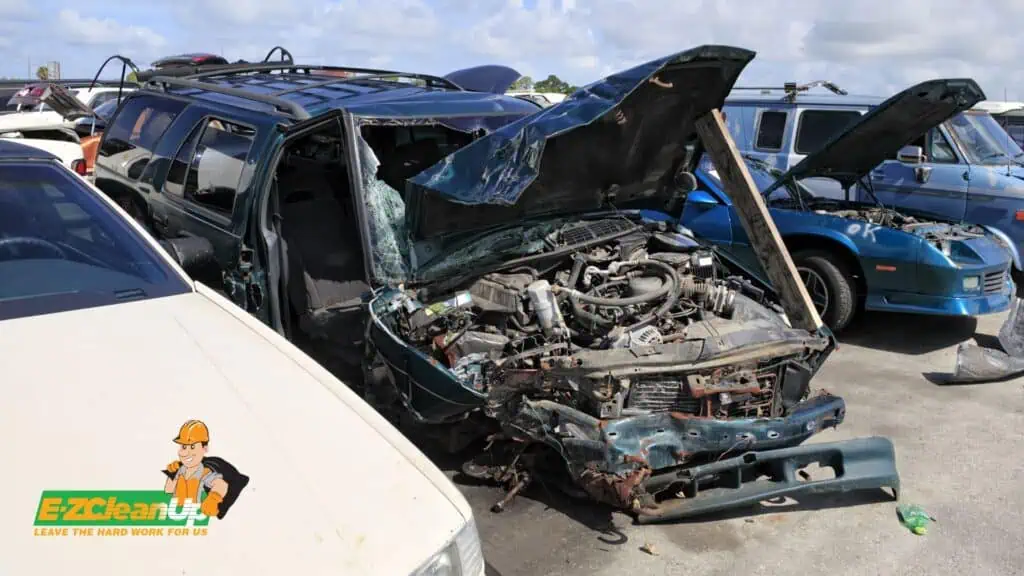
Compiling Necessary Documentation and Vehicle History
Having the right documentation ready is critical for a transparent and smooth selling process. Here’s what you need to gather:
- Title and Registration: Ensure you have the car’s title and registration documents, which are essential for legally transferring ownership.
- Service Records: Collect any service records to show the maintenance history of the car. This can reassure buyers about what has been done and what might need attention.
- Mechanic’s Report: If possible, get a mechanic to assess the car and provide a report on its condition. This can help in setting a fair price and informing potential buyers of the car’s status.
- Honest Disclosure: Be upfront about why the car doesn’t run. Whether it’s due to engine problems, transmission issues, or something else, disclosing this information can build trust and facilitate negotiations.
Pricing Your Non-Running Car Appropriately
Understanding the factors that affect the pricing of your non-running car can help you set a realistic and competitive asking price. Generally, newer vehicles or those with a high demand for parts retain more value even when not running.
Certain makes and models are also more likely to fetch higher prices due to the popularity of their parts in the used car parts market.
The physical and mechanical state of the car significantly influence its price. A vehicle that’s intact and has salvageable parts such as the catalytic converter, alternator, or even a relatively undamaged body will generally be worth more than one that’s severely damaged or rusted.
Moreover, your geographical location can affect the value due to varying demand for specific car models and parts. Additionally, proximity to salvage yards or scrap prices in your area can influence how much you can get for the vehicle.
Legal Aspects of Selling a Non-Running Car
Selling a non-running car involves specific legal considerations to ensure a smooth transfer of ownership and compliance with state regulations.
The essential documents needed to sell a non-running car include:
- Title Transfer: This is crucial for legally transferring ownership to the buyer. Ensure the title is clear and accurately filled out with the buyer’s and seller’s information.
- Bill of Sale: While not mandatory in all states, providing a bill of sale is good practice as it documents the transaction details and can serve as additional proof of the transfer.
- Odometer Disclosure: Federal law requires sellers to disclose the vehicle’s odometer reading at the time of sale, which helps protect buyers from odometer fraud.
- Release of Liability: This document notifies the state that you have sold the vehicle, which can protect you from future liabilities such as tickets or accidents involving the vehicle post-sale.
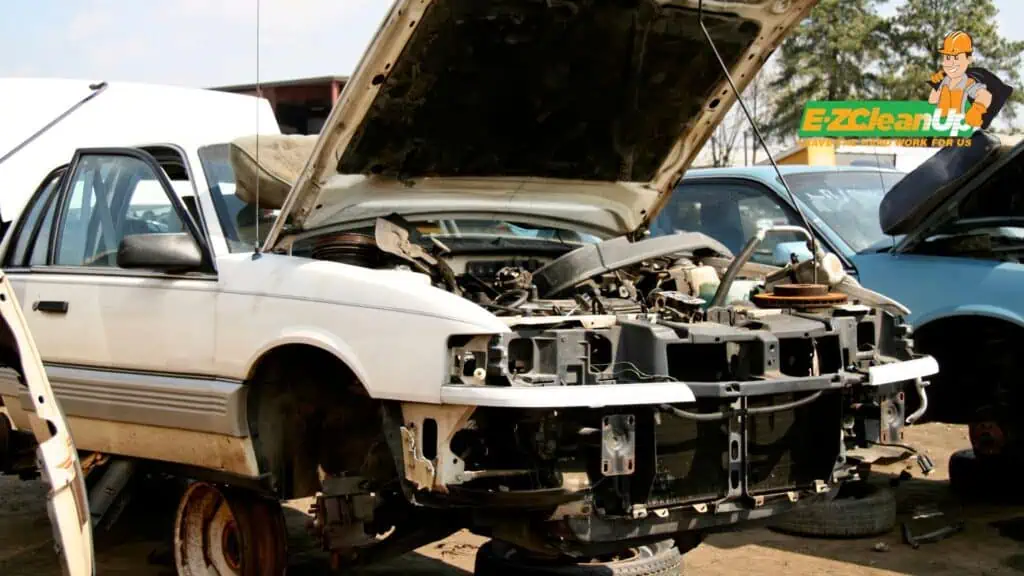
Understanding State-Specific Regulations
Each state has its own set of rules regarding the sale of vehicles, which can include:
- Emissions Tests and Safety Inspections: Some states require passing these tests before the sale to ensure the vehicle meets state standards.
- Notice of Transfer: Many states require the seller to notify the Department of Motor Vehicles (DMV) immediately after the sale of the vehicle. This notification helps in updating the vehicle’s record and protects the seller from liabilities associated with the vehicle’s future use.
- Use of Dealer’s License: If you sell more than a certain number of vehicles annually, you may need a dealer’s license according to the Federal Trade Commission’s Used Car Rule. This rule also mandates the posting of a Buyer’s Guide in vehicles for sale, detailing warranty and vehicle information.
It’s important to check with your local DMV or similar regulatory body to ensure all local requirements are met and to obtain the necessary forms and further guidance. These steps will help in legally securing the sale and transfer of your non-running car, providing peace of mind to both the seller and buyer.
Negotiating and Finalizing the Sale
Dealing with the process of negotiating and finalizing the sale of a car requires understanding both strategy and legalities to ensure a successful transaction.
Effective negotiation is essential for getting the best deal on a car. Here are some strategies:
- Research the Market: Understand the fair market value of the car you’re interested in. This will help you make informed offers and resist high counteroffers.
- Remain Objective: Keep emotions out of negotiations to make rational decisions. This prevents getting swayed by sales tactics that play on emotional responses.
- Time Your Purchase: Consider shopping at the end of the month or during sales events, when dealers may be more motivated to meet quotas and more willing to negotiate.
- Discuss Total Costs: Focus on the total price of the vehicle rather than just the monthly payments. This approach helps you understand the full financial impact and avoid long-term overpayments.
- Pre-approved Financing: Having financing from a bank or credit union often provides leverage in negotiations as it shows you’re a serious buyer and limits the dealer’s ability to mark up interest rates.
Steps to Complete the Sale and Secure Payment
Finalizing the sale of a car involves several critical steps to ensure everything is legally binding and secure:
- Agree on Terms: Once a price is agreed upon, make sure all terms of the sale are clearly outlined, including warranties and the return policy.
- Official Paperwork: Complete all necessary paperwork, which includes the bill of sale, title transfer, and any disclosures like the odometer reading.
- Verify Payment: Confirm the payment method and ensure funds are secured before handing over the car. This might mean waiting for a check to clear or confirming financing arrangements.
- Transfer Title and Registration: Make sure to transfer the title and registration to the new owner. Each state has specific requirements for this process, so check with your local DMV.
- Report the Sale: Notify your DMV or transportation department of the sale to absolve yourself from future liabilities associated with the vehicle.
Alternatives to Selling Your Non-Running Car
When considering what to do with a non-running car, selling it isn’t your only option. Donating a non-running car can be a straightforward way to assist a charity while potentially benefiting from a tax deduction.
Organizations like Wheels For Wishes, Goodwill Car Donations, and Habitat for Humanity accept non-running vehicles and often offer free towing. When you donate, the charity typically sells the vehicle at auction, and you can deduct the sale price or fair market value on your tax return, depending on how much the car sells for.
This process is usually simple, with the charity handling most of the paperwork and logistics. Remember to obtain a receipt from the charity, which you’ll need for your tax filing.
On the other hand, if you’re mechanically inclined or know someone who is, parting out your car can be another viable option. This involves dismantling the car and selling its parts individually.
Components such as the engine, transmission, electronic modules, and even body parts like doors and bumpers can be valuable if they’re in good condition. This approach often yields higher total returns than selling the car as a whole, especially for models with high-demand parts.
However, this process can be time-consuming and requires a space where you can store and dismantle the vehicle safely.
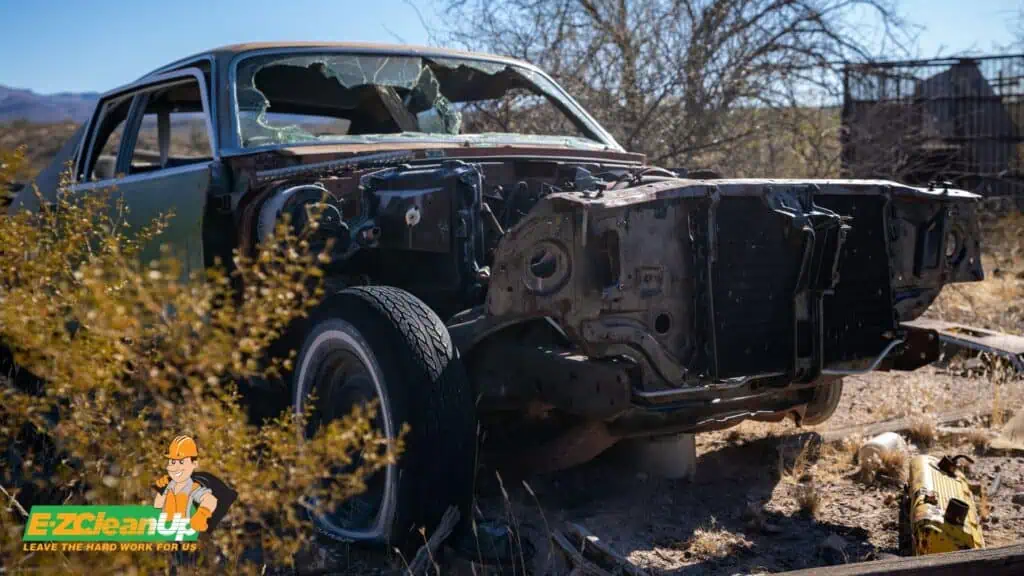
Cash In, Car Out
Dealing with a non running car can often seem like a road to nowhere. Selling privately requires time and effort, while junkyards can involve tedious negotiations. However, EZ CleanUp offers a straightforward alternative that bypasses these common roadblocks.
We provide a quick, efficient service that not only removes your immobile vehicle but also pays you cash, simplifying what is typically a difficult process. Aside from hauling away junk, including old mattresses, bulky appliances, and more, we’re also experts in buying junk cars for cash.
To learn more and to take advantage of our fast service and fair compensation, reach out to us.

